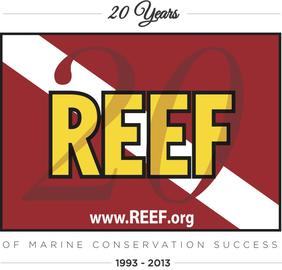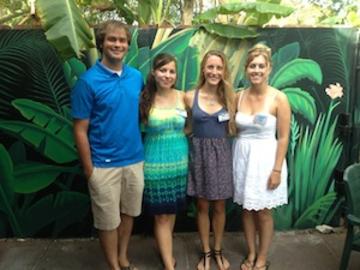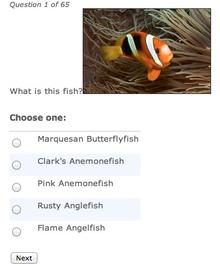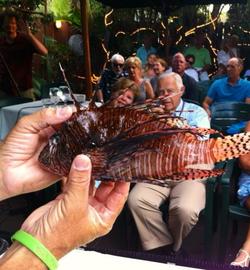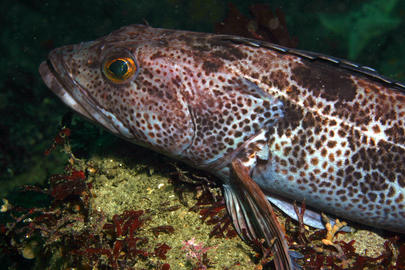Do you know a young adult who is interested in ocean conservation, research, education, and diving? Applications are currently being accepted for the Fall REEF Marine Conservation Internship positions. Every four months, REEF invites hundreds of applicants to compete for four internship positions. The chosen interns implement community outreach and education programs focused on reef fish identification and lionfish handling and collection. Interns also dive and volunteer with partner organizations in the Florida Keys.
Have you made your plans to join us in Key Largo this summer for REEF Fest? Come celebrate 20 years of the REEF Volunteer Survey Project with 4 days of diving, learning, and parties. REEF Fest is planned for August 8-11. The schedule is packed with intrested workshops, diving oportunities, organized kayaking and snorkeling expeditions, and evening socials. Special room blocks have been reserved at several area hotels. Complete details can be found online at: www.REEF.org/REEFFest2013
On behalf of our current, past, and future REEF Marine Conservation Interns, we would like to thank all those who donated during our Spring fundraising campaign to support our internship program. Thanks to the generous contributions of many members, we reached (and surpassed) our goal, raising $10,196! These funds will help ensure that we can continue this important program and support these enthusiastic young professionals as they gain critical career skills. Although less known, the REEF Marine Conservation Internship Program is one of our most successful endeavors.
The author deconstructs a recent scientific study published in the journal Methods in Ecology and Evolution that compares data collected by REEF surveyors with surveys collected by professional scientists.
This paper is the result of a workshop held at University of Washington in 2008 on nearshore rocky reefs. REEF Director of Science, Dr. Christy Pattengill-Semmens, presented data collected by REEF surveyors in the Pacific Northwest, and some details from that talk are in this paper. Nearshore temperate reefs are highly diverse and productive habitats that provide structure and shelter for a wide variety of fishes and invertebrates. Recreational and commercial fisheries depend on nearshore reefs, which also provide opportunities for non-extractive recreational activities such as diving.
Five days remain in our fundraising campaign to raise $10,000 for our REEF Marine Conservation Internship Program, and we are only halfway there! Help us reach our goal by donating today. Please consider supporting these enthusiastic young professionals as they gain critical career skills and provide REEF with invaluable program support. Although less known, the REEF Marine Conservation Internship Program is one of our most successful endeavors.
We recently updated our online quizzes to add several more regions, including the South Pacific, the Northeast, California Invertebrates, and the South Atlantic. If it's been a while since you have visited this resource on our website, check it out today. These fun quizzes are a great way to test your ID skills. You can take the quiz as many times as you want, and questions are randomly generated so it will always be a bit different. Have fun!
More than sixty people gathered earlier this month at the Fish House Encore in Key Largo, Florida, for Lionfish Food and Wine Night. Before dining, event attendees learned about the lionfish invasion and the importance of removing lionfish from marine environments. Peter Tselikis, chef at Fish House Encore, showed the audience how to cook two popular lionfish dishes. Lad Akins, a renowned lionfish expert and REEF Director of Special Projects, taught the audience how to fillet lionfish, avoiding the venomous spines.
Every month, scientists, government agencies, and other groups request raw data from REEF’s Fish Survey Project database. Here is a sampling of who has asked for REEF data recently and what they are using it for:
- A scientists from the Nature Conservancy in Washington is using REEF data to evaluate patterns of biodiversity in the Salish Sea and along the Oregon Coast as part of TNC's ecoregional analysis.
- A student at UNC Chapel Hill is using REEF data from the Galapagos Islands for use in a multimedia class project on data visualization.

